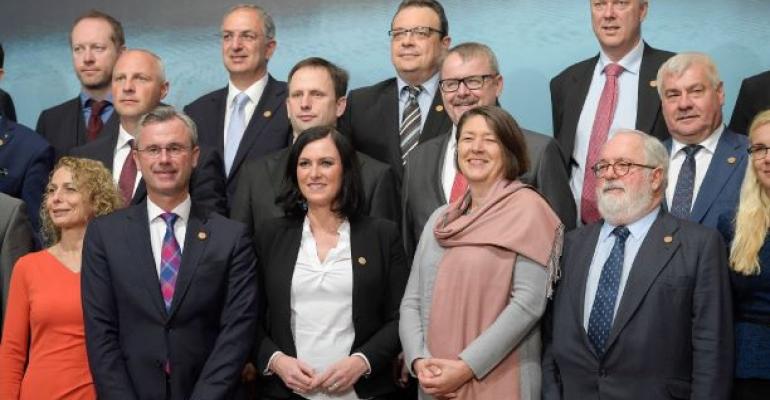European Union environment and transport ministers want incentives and financing programs to encourage cities, regions, companies and the transport sector to increase efforts toward zero-emission mobility.
After an informal meeting in Graz, Austria, the ministers say that at the EU level, they want state-aid rules simplified and for member states to acknowledge the importance of using existing financing and blending opportunities for clean transport.
Their so-called Graz Declaration is described as starting a new era of clean, safe and affordable mobility for Europe.
The ministers say in the declaration that the European Commission, member states, regional and local authorities and other stakeholders should encourage the acceleration of the market introduction of low- and zero-emission vehicles, including charging infrastructure, through funding and financial incentives at the EU and national level.
They want new emission regulations beyond 2030 aimed at increasing the market uptake of low- and zero-emission vehicles to help meet EU commitments under the Paris Agreement.
Research and innovation efforts using EU funding mechanisms would focus on technologies for decarbonizing the transport sector, including battery research.
The ministers call for broad campaigns to promote energy-saving driving styles and the purchase of low- and zero-emission vehicles.
The ministers outline a European mobility strategy that would maximize the potential of new transport technologies and zero-emission vehicles by combining them with climate-friendly mobility services and logistics.
It would incorporate automated vehicles into the mobility system, ensure transparent data-sharing practices and consider the user’s perspective.
The policy would support sustainable-mobility planning and land-use policies to counteract urban sprawl and provide incentives for environment- and climate-friendly connectivity and accessibility in cities and regions.
The ministers say the strategy should factor in vulnerable road users, especially cyclists and pedestrians, by ensuring safe infrastructure and improved vehicle technology.
The wish list includes promoting a shift from road to more sustainable transport modes for both passengers and freight and facilitating the introduction of multimodal freight transport solutions, including ports and terminals.
This would see work continue on implementing a single European railway area with better interoperability, in particular by removing barriers at the borders and ensuring consistent operating rules and operating language.
The ministers’ statement says the meeting marks the beginning of a new era “in which all parties will work toward a green deal for a new mobility in Europe – a clean, safe and affordable mobility that is beneficial for our citizens, our society, our environment and our economy.”





